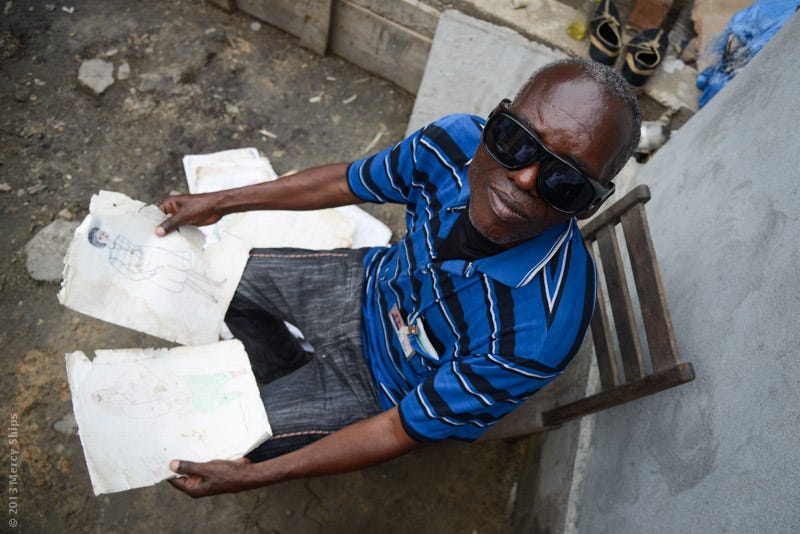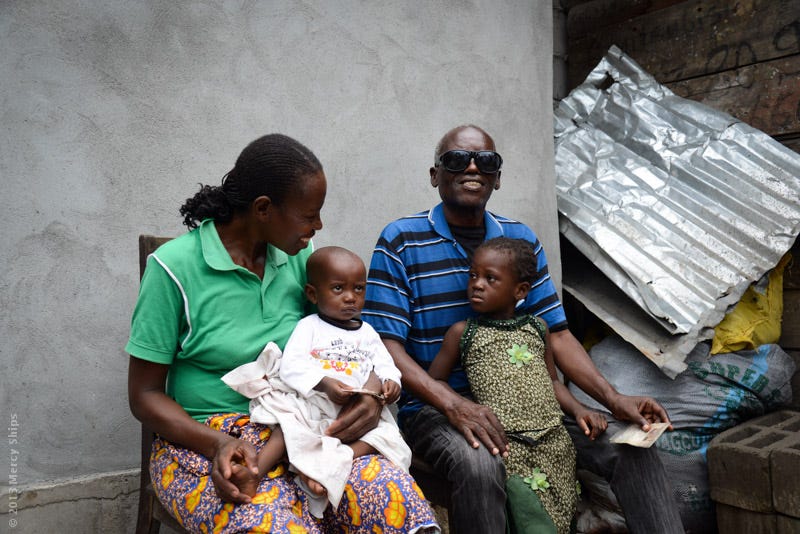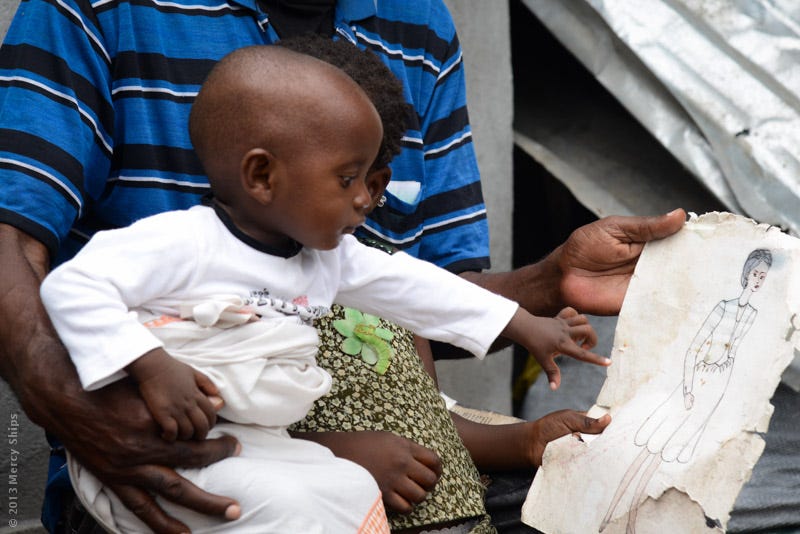It’s
rainy season in Congo and Marcel’s backyard is a muddy mess. He has
seated himself on the only dry ground with one stack of sketches in his
lap and another at his feet. Marcel, 60, comments that he has never
liked having his photo taken, but he poses like a seasoned professional.
As he holds up each sketch, his enthusiasm suggests that it’s been a
while since someone has asked him to discuss his designs. In fact, it’s
been a while since he’s seen them himself.

Five
years ago, Marcel was at the peak of his career. He had earned his
place as a respected designer and tailor among Congo’s elite. He was
seeing six or seven clients per day in his shop in Pointe Noire. Marcel
met the sartorial needs of high society; through his doors came
businessmen, oil executives, and government officials, even the city’s
Mayor. Anyone who was anyone was wearing Marcel.
Marcel’s
creations were art. After studying fashion and tailoring in
Brazzaville, Congo’s capital, he returned to Pointe Noire to outfit the
residents of his hometown. As he made a name for himself, Marcel built a
business and a family. He and his wife lived in the house behind his
shop. Life was good, but underneath the fabric bolts and tape measures,
Marcel had a secret: he was going blind.
The plucky
55-year-old carried on working anyway. Within the next year, his vision
deteriorated into milky-white blindness from cataracts. He kept his shop
open until the day he realized he had been sewing suit pockets on
backwards. It was time, he decided. Marcel closed his doors.
Marcel wasn’t unique in his condition — cataracts are the leading cause of reversible blindness in sub-Saharan Africa. (source: World Health Organization)
Under different circumstances, a man as persistent as Marcel might have
been able to access and afford the treatment he needed. But in central
West Africa, the treatment that was available was out of his reach. He
had no options but to learn to live in unnecessary blindness. After a
career spent dressing the powerful, Marcel found himself powerless. He
grieved his vision, his independence, his livelihood, and his art.
In the fall of 2013, Marcel’s wife, Philomene, saw a poster in Pointe Noire. It advertised an organization called Mercy Ships
that offered free cataract surgeries. She wrote down the information
and went home to Marcel with the news. It seemed too good to be true. At
his appointment, Marcel was assessed by a Mercy Ships volunteer
ophthalmologist and scheduled for eye surgery on the Africa Mercy.
Today, Marcel can see again. When he talks about the eye surgery that restored his vision, he’s talking about a 30-minute outpatient
procedure which was sponsored by a donor for $250. The cost is not
insignificant, but when considering all the ways the surgery has
restored his life, it seems small.
As for fashion,
Marcel is picking up right where he left off. He plans to re-open the
shop next to his house, and he is already conceptualizing the garments
he will create. The news that Marcel’s vision has been restored has been
widely celebrated in town. “My community is worshiping God,” he says.
Soon, he hopes his shop will be busy again with the familiar faces of
his dapper clientele.
Today in Marcel’s dreary
backyard, one might struggle to find inspiration — but Marcel says he
finds exceptional beauty in the ordinary. He sees with new eyes, taking
nothing for granted. In fact, his current muse is a chicken. He
considers the feathers of a chicken to be so elegant that he is inspired
to create a masterpiece, but Philomene says his first order of business
is to make something especially for her. Marcel knows better than to
disagree.


Rainy
season is almost over, and, when the sun comes out, Congo’s gorgeous
landscape will bloom. Between his work, grandchildren, and yard of
inspirational poultry, Marcel can look forward to a beautiful future.
Years ago, it was a different Marcel who wrote, “The real voyage of discovery consists not in seeking new landscapes, but in having new eyes.”
I know a Marcel in Congo who understands this in ways most of us never will.
About the author: Catherine Clarke Murphy is a Writer and Photographer for Mercy Ships.
No comments:
Post a Comment